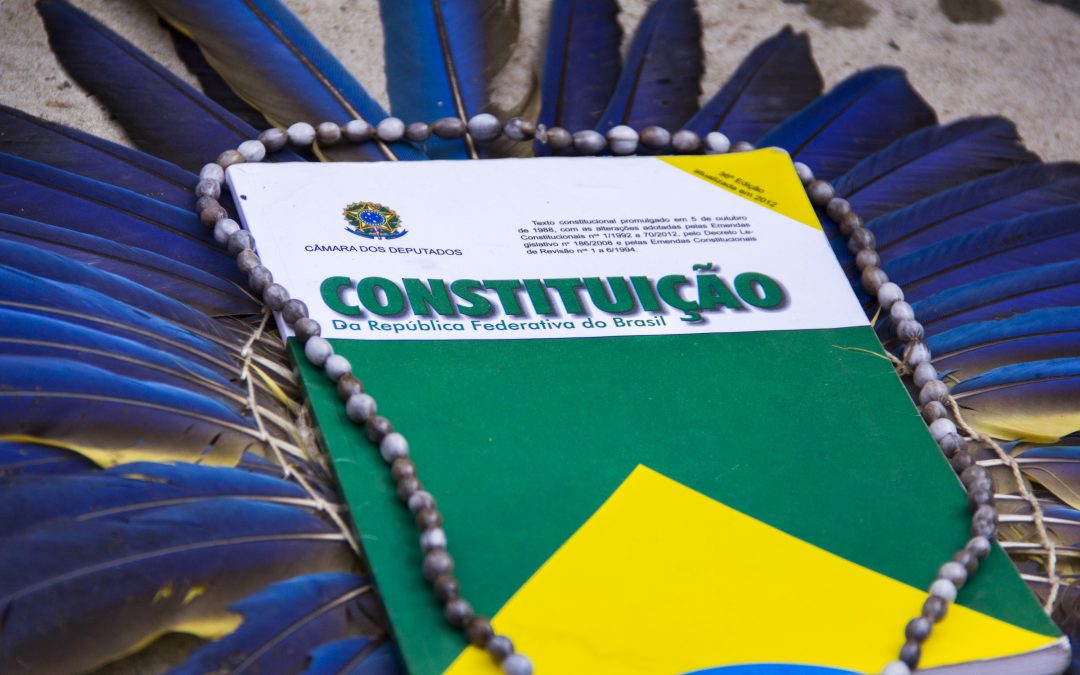
06/May/2021
APIB denounces to the Brazilian Federal Supreme Court and to the Inter-American Commission on Human Rights (IACHR) political persecution of the Bolsonaro government against indigenous peoples
The Articulation of Indigenous Peoples of Brazil (Apib) filed a report yesterday, 5, at the Inter-American Commission on Human Rights (IACHR) and at the Federal Supreme Court (STF) about the Federal Government’s political persecutions against Apib and Sonia Guajajara, one of the executive coordinators of the organization.
On April 26, during the month of the largest indigenous mobilization in Brazil and in the week following the Climate Summit meeting, the Federal Police (PF) summoned Sonia to testify in an open police investigation by the National Indian Foundation (Funai). The governmental agency, whose institutional mission is to protect and promote the rights of the peoples of Brazil, accuses Apib of defaming the Federal Government with the web series “Maracá” (http://bit.ly/SerieMaraca), which denounces right violations committed against indigenous peoples in the context of the Covid-19 pandemic.
“We alert the Inter-American Commission on Human Rights to the escalation of authoritarianism underway in Brazil. The democratic environment is at risk. In no republican and democratic state can the state apparatus be used under the discretion of its rulers. The free expression of thought and freedom of expression, supported by constitutional, conventional and legal principles, cannot be criminalized ”, reinforces Apib’s legal coordinator, Luiz Eloy Terena, in the report sent to the IACHR.
All violations of rights against indigenous peoples during the Covid-19 pandemic exposed by Apib in the Maracá series were presented to the STF in 2020, in the Fundamental Precept Failure Statement (ADPF) No. 709. On that occasion, the main court of the country acknowledged the complaints presented and determined that the Federal Government should adopt measures to protect the indigenous peoples. So far, the STF’s decision has been partially accepted by the government.
“The inquiry opened by the PF is a clear attempt to limit freedom to be critical, whether against the government or against its political agents, even if this is also part of the Democratic Rule of Law and that matters of public and social interest are under the tutelage of the constitutional cloak of the right to information ”, reinforced Eloy Terena in an excerpt from the complaint presented to the STF minister Roberto Barroso, who is the rapporteur for ADPF 709.
Inquiry suspended
On the same day of the denunciations made to the STF and IACHR, the Federal Court of the Federal District determined last night (5), at the request of Apib, to close the investigation opened by the Federal Police. Apib filed a lawsuit on May 3 to annul the investigation, which is an action of political persecution.
“It is also worth mentioning that the clear mention in FUNAI’s letter about alleged slanderous conduct against the President of the Republic suggests that the whole situation narrated has the main purpose of silencing political manifestations disclosed by an entity that stands against the present Federal Government”, federal judge Frederico Botelho argued in his decision.
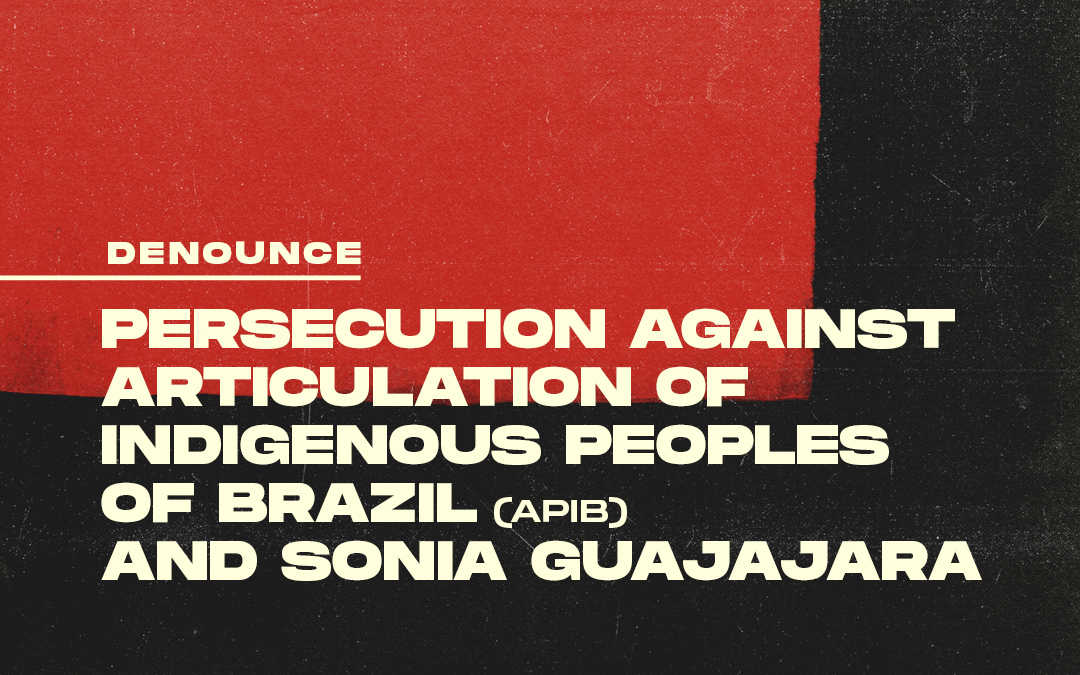
30/Apr/2021
The Federal Government once again tries to criminalize the indigenous movement, intimidate the Articulation of Indigenous Peoples of Brazil (Apib), our network of grassroots organizations, and one of Apib’s executive coordinators, the leadership Sonia Guajajara, in an act of political and racist persecution.
During the month of the largest indigenous mobilization in Brazil and the week following the ‘Climate Summit’ meeting, the Federal Police summoned Sonia, on April 26, to testify in an investigation provoked by the National Indian Foundation (Funai). The body, whose institutional mission is to protect and promote the rights of the peoples of Brazil, accuses Apib of defaming the Federal Government with the web-series “Maracá” (http://bit.ly/SerieMaraca), which denounces violations of rights committed against indigenous peoples in the context of the Covid-19 pandemic. These complaints have already been recognized by the Supreme Federal Court (STF) through ADPF 709.
The racist and hateful speeches of the Federal Government stimulate violations against our communities and paralyze the State actions that should promote assistance, protection and guarantees of rights. And now, the Government seeks to intimidate indigenous peoples in a clear attempt to retrench our freedom of expression, which is the most important tool for denouncing human rights violations. Currently, more than half of the indigenous peoples have been directly affected by Covid-19, with more than 53 thousand confirmed cases and 1059 dead.
They will not trap our bodies and they will never silence our voices. We will continue to fight for the defense of the fundamental rights of indigenous peoples and for life!
Follow today, April 30, at 3:00 pm (Brasília time), the closure of the Terra Livre Camp with the positioning of Apib and its regional indigenous organizations on the case, which will be transmitted at apiboficial.org/atl2021
Indigenous blood, not a single drop more!
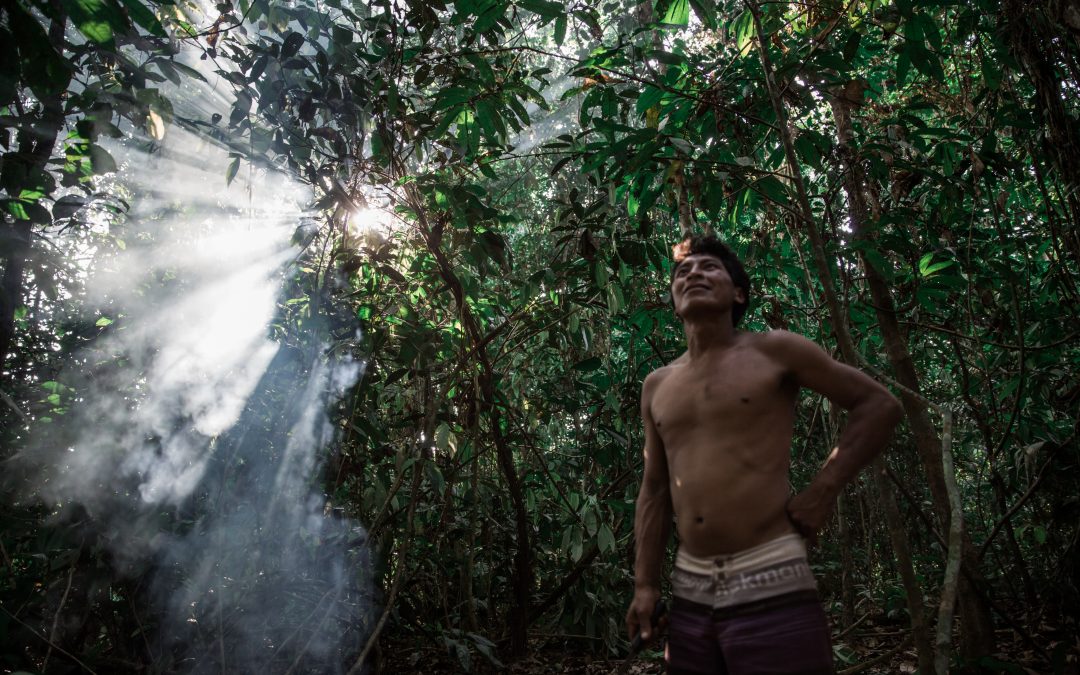
22/Apr/2021
We are here, we are for you and we are all one!
Dear Pacha Mama, generous Mother Earth,
We are gathered here in this act to once again reaffirm our commitment and willingness to defend you until the last of our sighs.
On this Earth Day, celebrated every April 22, we remember how generous you are, how much abundance you provide and how many gifts you offer to your sons and daughters.
We speak on behalf of those who understand you as an integrated ecosystem, in which the physical, biological, spiritual and energetic dimensions of our lives dance in a harmonious way, allowing an infinite number of beings to enjoy your work.
We speak on behalf of those who have a more intimate connection with you – the indigenous, the riverside communities, the quilombolas, the settlers, those born and raised in traditional populations – and who are used to the cycles of sowing and harvesting, which requires commitment from us, hard work, respect for nature and its wisdom.
We are currently under a great challenge – a pandemic of global proportions, caused by the careless and pretentious way in which we deal with your majestic creation.
This pandemic is taking our loved ones, but not only: it is changing our economy, our politics and the functioning of the society that we chose to be a few centuries ago.
We already understand that capitalism does not bring the answers that we want, and solutions that we need – and that is why it needs to be replaced by another way of looking at existence.
We dig for gold and ores, destroying everything around as if there were no tomorrow – and there always is;
We burn roots, branches and trunks, leaving ashes and charred remains where color and life used to be;
We allow our natural sanctuaries to be invaded and vandalized, causing deep wounds on your skin;
We pollute the waters, disrespecting rivers, lakes, seas and oceans, as well as all beings that depend on them;
We exterminate pollinators and launch gases that condemn all life.
The signs of our bad attitude are evident: the climate has changed; water is lacking for many; breathing is difficult in several places; fruits are scarce; and many of our people are forced to move in search of provisions and better living conditions;
But we ask you, Generous Mother who heals – do not give up on us.
Forgive those who have not yet understood the strength of the sacred feminine, the energy of women and the contributions they bring to our struggles and lives;
Forgive those who still advocate the supremacy of man over all other forms of life, without understanding that each animal, each plant, each river or waterfall, each valley or mountain, each forest or each savanna, has its raison d’être;
Forgive your children who have not yet understood that we are all one and that everything is connected;
Forgive your children who have not yet understood that life goes in cycles – there is no good fortune that does not cover its price, and there is no time of abundance without a period of scarcity. Therefore, balance is essential.
At this moment, with this letter:
We promise you with the strength of our maraca, genipap and annatto, to fight fully for life; making our bodies trees of our floors, the last frontiers in the struggle for life.
Beloved Mother,
Accept the requests of your children who know that without you nothing springs and nothing grows.
Help us to conceive a collective decolonial thought, closer to your demands, more horizontal in its visions, that properly values all your manifestations.
Only you know the future that we deserve.
But we trust in your love and your generosity to guide us towards a restorative transformation that will alleviate suffering and heal wounds.
We ask for your compassion and a little more patience.
We are here, we are for you and we are all one!
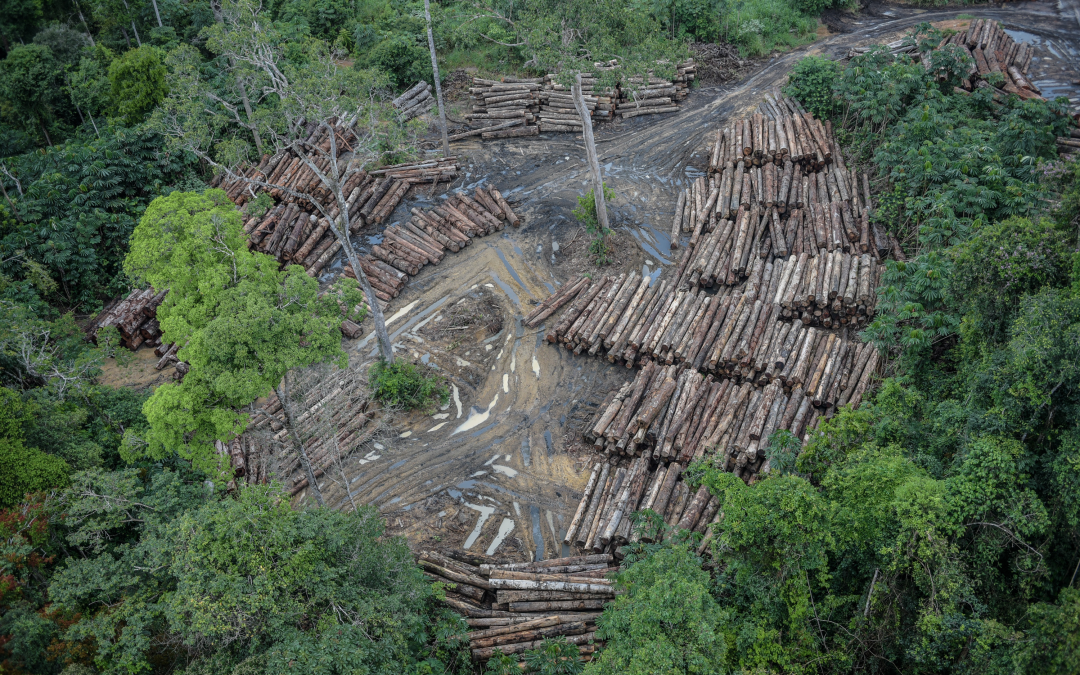
06/Apr/2021
Nearly 200 Brazilian organizations warn American President about risks of a closed-doors negotiation with the Brazilian ruler.
A group of 199 Brazilian civil society organizations released today (6th) a letter to the American government, warning that a forthcoming cooperation deal between the United States and the Bolsonaro administration could bring a risk for the environment, human rights, and democracy.
The Joe Biden administration has been negotiating for several weeks, behind closed doors, an environmental agreement with the government of Jair Bolsonaro. Such deal is to be announced in the climate summit convened by the US President for the 22nd and 23rd of April. Sources close to the talks say the agreement shall involve money transfers to Brazil. In the campaign trail, Biden talked about raising US$ 20 billion to save the Amazon.
According to the letter, the negotiations with Bolsonaro – a denier of the Covid pandemic who has dismantled Brazil’s longstanding environmental policy and who was sued by indigenous peoples in the International Criminal Court for crimes against humanity – put to test Biden’s inaugural speech: the American President promised then to fight the pandemic, structural racism and climate change, and to reclaim America’s place in the world through “the power of its example”. “President Biden needs to choose between being true to his speech and lending political prestige and money to Bolsonaro. He can’t have both.”
The text also states that any dealings with Brazil about the Amazon must involve civil society, subnational governments, academia and the private sector. And no talks should move forward until Brazil has slashed deforestation rates to the level required by the national climate change law and until the string of bill proposals sent do Congress containing environmental setbacks is withdrawn.
“Any deal that fails to respect those premises would be an endorsement do the humanitarian tragedy and to the environmental and civilizational setback imposed by Bolsonaro”, the NGOs say. “It is not sensible to expect any solutions for the Amazon to stem from closed-door meetings with its worst enemy.”
“The Bolsonaro government strives to legalize the exploitation of the Amazon, bringing irreversible damage to our territories, to our peoples and to life in this planet. We are united to harness all support we can get that may strengthen the fight for our lives and for Mother Earth. We remain mobilized against the genocidal project that has been trying to eliminate us for more than 520 years in Brazil and which also destroys our biodiversity. That is why we insist: indigenous blood, not one drop more”, says Alberto Terena, executive coordinator of Apib (Brazilian Indigenous Peoples’ Articulation).
“When the Cerrado, the Amazon or the Pantanal burn, our people burn. The Bolsonaro government strikes bilateral deals that go against our Constitution and destroy nature; he does not respect our territories and he’s making no effort to demarcate them. Even in this moment of pandemic, in which we can’t bury or mourn our dead, Bolsonaro keeps trying to defeat us, through the destruction of our biodiversity”, declares Biko Rodrigues, national articulator of Conaq (National Coordination for the Articulation of Black Rural Quilombola Communities).
“Brazil is today a divides country. On one side there are indigenous peoples, quilombolas, scientists, environmentalists and other people that fight for life and against deforestation. On the other side is the Bolsonaro regime, threatening human rights and democracy and puts the Amazon in risk. Biden must pick a side”, says Marcio Astrini, executive secretary of the Climate Observatory.
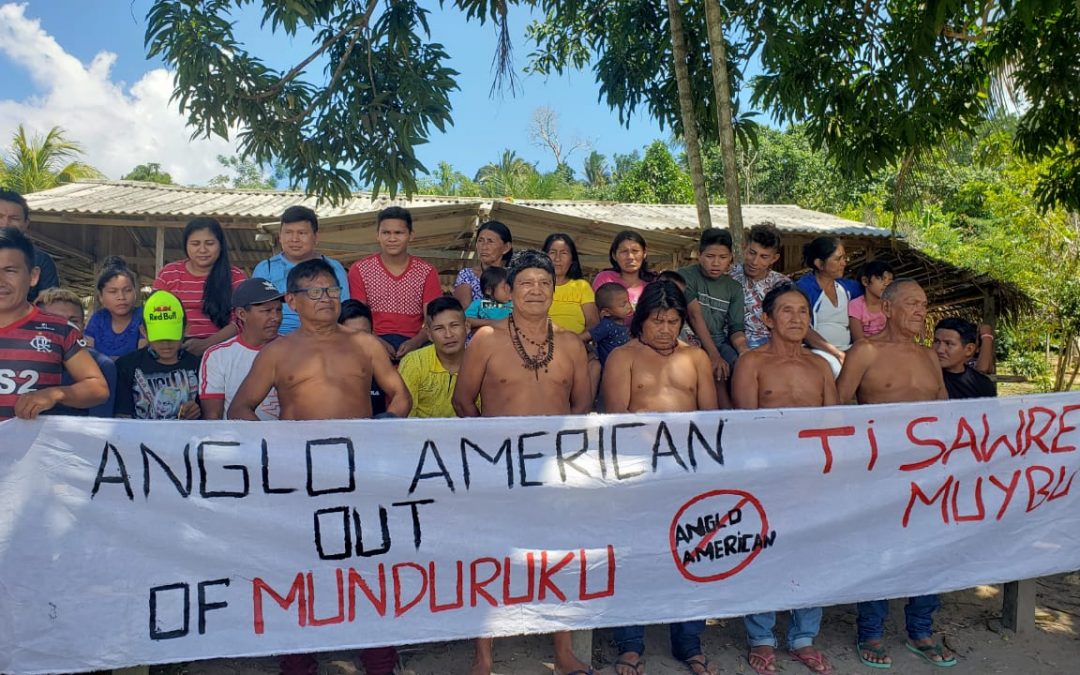
09/Feb/2021
The mining giant clarified this decision in response to a letter by the Association of Brazil’s Indigenous Peoples (APIB) and Amazon Watch, in support of the Munduruku people demanding Anglo American immediately withdraw applications for copper exploration on Sawré Muybu land.
Brasília/Brazil, Oakland/USA – On January 25, British mining company Anglo American responded to the open letter from the Association of Brazil’s Indigenous Peoples (APIB) and Amazon Watch from December 22, in which the organizations demanded that the mining company make a public commitment not to carry out mining activities on Indigenous lands in Brazil, regardless of changes to Brazilian legislation. In its response, Anglo American states: “We cannot make a commitment to rule out any mining activities on Indigenous Lands in Brazil.”
Without mentioning Bolsonaro’s new policy that authorizes mining on Indigenous lands (PL 191/2020), Anglo American says that all legislative changes that affect Indigenous rights must be made in consultation with the potentially affected communities, and “such consultations should appreciate the complexity and diversity of communities, and that their aspirations may differ, with some communities welcoming mining and others deciding against it.”
However, Bolsonaro’s bill proposes to reclaim full control over land use, while removing the veto power of Indigenous peoples in relation to the exploration of their territories. Mining would only require approval at the President’s discretion, after a merely symbolic consultation process with Indigenous peoples to confirm projects.
After receiving this response, APIB requested a meeting with Anglo American to explain and share once again the demands of the Indigenous movement and communities potentially impacted by the mining company and replied to Anglo American in a response letter. For APIB, Anglo’s response is insufficient. “We are waiting for a new resolution by Anglo American, which should be only one for Indigenous peoples: to publicly commit to cease mining activities on Indigenous territories in Brazil. It is important to remind the mining company that the majority of Indigenous peoples and communities in Brazil do not share the desires of a minority of Indigenous individuals who are deluded and yield to the veiled evil intentions of this government,” according to Eloy Terena, APIB’s Legal Coordinator.
APIB’s and Amazon Watch response letter to Anglo American can be read here.
Background
On November 20, in response to the Business and Human Rights Resource Center, Anglo American stated that it had given up all applications for mineral exploration inside Indigenous lands in Brazil and that it would contact the Brazilian National Mining Agency (ANM) to update its applications, following the release of the Complicity in Destruction III report, published by APIB and Amazon Watch. However, on November 27, InfoAmazônia revealed that the National Mining Agency (ANM) had granted permission for 27 of the mining company’s applications for copper prospection within Indigenous territories in the states of Mato Grosso and Pará. Of those 27, 13 are for prospecting in the Sawré Muybu territory.
In the response sent to APIB, the mining company claimed “adhere to local laws and international standards when engaging with Indigenous Peoples and we will seek to obtain Free, Prior and Informed Consent (FPIC) of Indigenous Peoples prior to conducting activities that require access to Indigenous Peoples’ lands and/or impact Indigenous Peoples’ livelihoods or cultural heritage during all stages of exploration.” Anglo American also alleged, to respect “the right of indigenous communities to oppose mining-related activities on their land and will refrain from undertaking any activities if consent is withheld.”
However, the company fails to mention any consultation efforts with the Munduruku people and even though it acknowledges having three concession applications that overlap the Sawré Muybu Indigenous Territory.
The Munduruku people have made their veto clear in a recent demonstration held on January 16, in the Sai Cinza village, in Itaituba, state of Pará. With a banner, they sent their message in English: “Anglo American: Out of Munduruku – TI Sawré Muybu.”
Alessandra Munduruku, a Munduruku leader and warrior, shared photos from the action on her Facebook page, with the message: “The Anglo American mining company requested authorization to ANM to explore the Sawré Muybu Indigenous Territory—[it is] a mining company that destroys forests, rivers, and Indigenous peoples. We are here inside [our territory] and will continue to be. Anglo American—Get Out! Demarcation Now! The people will go on resisting.”
At the Munduruku People Resistance Forum, held in December 2020, the Munduruku mentioned mining and the presence of large mining companies on their territory, such as Anglo American, as high-impact threats to their territories and communities in a heartfelt announcement demanding the recognition of the Munduruku’s rights to life and land.
In support of the demands issued by the Munduruku, APIB and Amazon Watch have published a petition that will be sent to Anglo American to pressure the mining company to withdraw its mining applications on Indigenous territories.
The Munduruku people and all Indigenous peoples who may be impacted by Anglo American’s activities demand that the mining company make a public commitment to cease all mining activities in Indigenous territories in Brazil and that it withdraw all applications for mineral exploration in Indigenous territories. Only then would Anglo American be in line with their human rights and biodiversity protection pledges, particularly the ICMM Position Statement on Mining and Protected Areas.
Anglo American’s full response and clarification regarding their mineral research applications on Indigenous lands can be read here. And its policy for Indigenous peoples is summarized in a document called Social Way, available here.
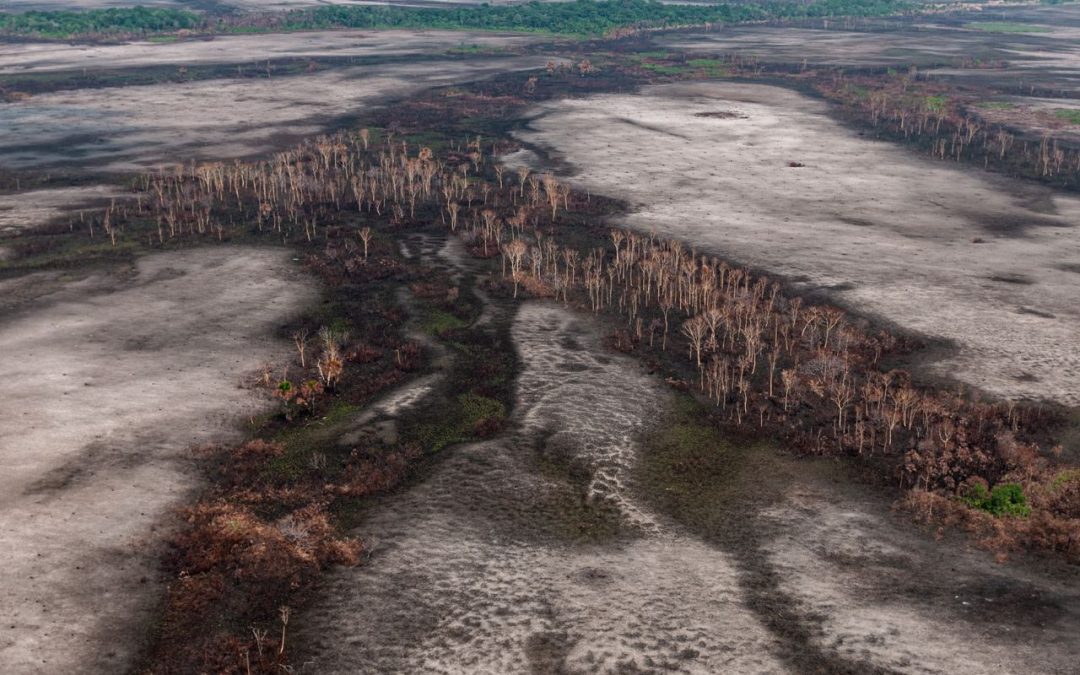
11/Jan/2021
Brasília, Brazil – Today, the Association of Brazil’s Indigenous Peoples (APIB) sent an open letter to BlackRock CEO Larry Fink, calling on the asset management firm to adopt a comprehensive Forests and Indigenous Rights policy. The letter comes days before the expected release of Fink’s annual letter, in which he often announces policy changes at the companies BlackRock invests in, and will announce a recent pledge from BlackRock to further clarify its approach to deforestation.
BlackRock is the world’s largest investor in deforestation-risk commodities, including in the Amazon. Recent research from Amazon Watch and APIB found that BlackRock is one of the world’s top investors in companies complicit in Indigenous rights abuses in the Brazilian Amazon, including Vale, JBS, Anglo American, Cargill, and more. Previous research published in 2019 by APIB and Amazon Watch demonstrated that BlackRock is a top investor in companies complicit in illegal deforestation activities in the Brazilian Amazon.
“BlackRock’s investments have an impact on our lives and our communities, and you, therefore, have a responsibility for our future. And if the Amazon is destroyed, the future of the entire planet is at risk,” wrote Luz Eloy Terena, part of APIB’s Legal Coordinator and a member of the Terena people, in the letter.
BlackRock has hinted it will take new steps on deforestation and biodiversity in 2021 but has provided no indication that it plans to address Indigenous rights. Studies show that Indigenous lands are crucial to protecting the world’s remaining intact forestland and halting global temperature rise. Protected areas in the Brazilian Amazon inhabited by forest peoples include Indigenous territories, extractive reserves (a type of sustainable use protected area in Brazil), and Sustainable Development Reserves that comprise up to 128.5 million hectares — an area equivalent to three times the size of the state of California. These protected areas store 56 percent of the total carbon stock in the Brazilian Amazon; preserving these protected areas is critical to achieving the goals of the Paris Climate Agreement.
“BlackRock has begun to take some climate action, but no climate action is complete without addressing deforestation, and no deforestation action is complete without safeguarding Indigenous rights. BlackRock must use its market power to actively push for companies to decarbonize, as science makes clear is necessary, and to end the large-scale Indigenous rights abuses associated with the fossil fuel and forest-risk commodity industries,” said Moira Birss, Climate and Finance Director at Amazon Watch.
As outlined in the letter, APIB’s Eloy Terena addressed CEO Larry Fink at BlackRock’s annual meeting of shareholders in May 2019 asking BlackRock to account for BlackRock’s impacts on Indigenous rights abuses and forest destruction in Brazil. Months later, the Brazilian Amazon was set ablaze by criminal arsonists, emboldened by Bolsonaro, and enabled by financially complicit institutions such as BlackRock. After APIB’s Executive Coordinator, Sônia Guajajara, wrote a letter to BlackRock in October 2019, BlackRock staff agreed then to meet with APIB Indigenous leaders. Although a call happened in December 2019, BlackRock staff never followed through with a scheduled in-person meeting for March 2020, despite APIB’s efforts to accommodate a virtual meeting noting new restrictions due to the pandemic.
Background:
In July 2020, Amazon Watch, Friends of the Earth U.S., and the BlackRock’s Big Problem campaign issued a set of baseline principles for any asset manager forests policy. Both those principles and APIB’s letter make clear that, at a minimum, any attempt by BlackRock or other asset managers to address deforestation among portfolio companies must include the following:
- Respect for Indigenous peoples’ rights, land rights, and self-determination;
- Requirements that companies consult with and obtain Free, Prior, and Informed Consent from Indigenous peoples and other traditional and local communities before engaging in any business activity that would impact them;
- Clear criteria and standards for time-bound engagement with investee companies and, if engagement does not result in concrete changes in company behavior and operations, a process for the exclusion of companies in both active and index funds based on these specific criteria and standards;
- Zero tolerance for attacks against land defenders;
- No deforestation, peat, or exploitation permitted in any company supply chain;
- Disclosure on emissions coming from the supply chains or financial flows (Scope 3 emissions);
- Water and soil contamination protections.
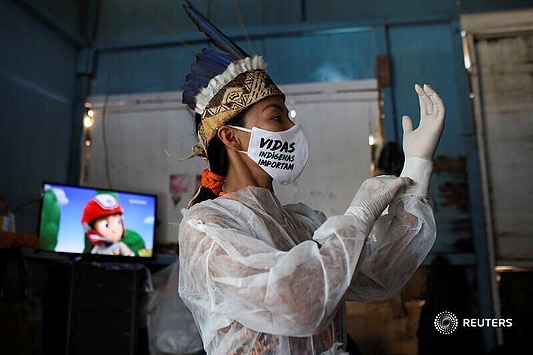
07/Dec/2020
The document “Our struggle is for life” provides a complete overview of the current health and humanitarian crisis among the indigenous peoples of Brazil. Denunciations of rights violations, analysis of data presented by the Federal Government and actions to combat the spread of the virus, are the main topics addressed by the report.
The Articulation of Indigenous Peoples of Brazil – APIB announces the publication of the report “Our struggle is for life” which presents data on the impacts of the Covid-19 pandemic among indigenous peoples. The report presentation will be held on December 10, the date on which the United Nations General Assembly formalized the International Declaration of Human Rights.
The Activity will be carried out in conjunction with the APIB grassroots indigenous organizations, with the Mixed Parliamentary Front in Defense of Indigenous People’s Rights, social movements and organizations that strengthen the indigenous peoples’ struggles.
In addition to recording the growth in the number of infected and killed by Covid-19, the report contextualizes the vectors of virus entry in the territories and the omission of the government to control the spread of the disease.
Violence against indigenous peoples, in this pandemic period, was intensified and this aggravation was encouraged by the Bolsonaro government, according to the survey carried out by Apib.
The report also presents an analysis of the different methodologies used by the Federal Government to record and monitor cases of contamination and deaths by Covid-19 among indigenous peoples. The lack of transparency, added to the institutional racism, especially with indigenous people living in an urban context, reveals once again the Federal Government’s anti-indigenous policy.
“Our struggle is for life” is a material that integrates the social control actions of the Indigenous Emergency plan, an instrument built by Apib to demand from the Federal Government the fulfillment of its constitutional duty to protect indigenous peoples and organize fronts of emergency response actions to confront the pandemic.
The document was organized by APIB through the National Committee for Indigenous Life and Memory, that develops the community monitoring of the spread of the virus among peoples. The Committee is composed of representatives of APIB grassroots indigenous organizations, indigenous leaders and members of networks built to face the pandemic in different territories.
“We also show in this document the thousands of actions carried out by the indigenous movement, throughout Brazil, to save lives. We do not want to take the role of the Government, but it is not an option to sit idly in the face of so much political omission and violence ”, emphasizes Sonia Guajajara, executive coordinator of Apib.
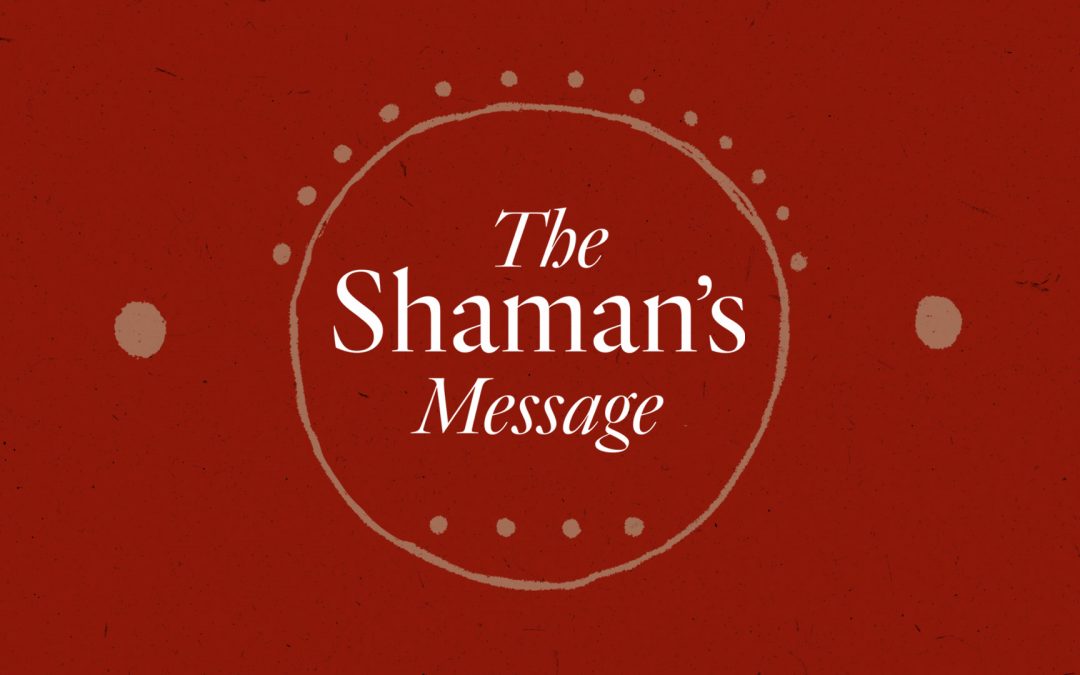
17/Nov/2020
The #MinersOutCovidOut campaign launches the film “The Shaman’s Message” to warn the world that indigenous peoples alone cannot prevent the destruction of forests, the emergence of new pandemics and the climate collapse that threaten all of us.
Yanomami shamans are warriors of the spirit world. They connect the visible and invisible worlds, acting as shields against the evil powers emanating from both humans and non-human beings that threaten the lives of their communities. Shamans dedicate themselves to taming the entities and forces that move the universe. They hold up the sky. During these times of climate crisis, pandemic and massive forest fires, it may be worth listening to what they have to say.
The most well-known Yanomami shaman and leader, Davi Kopenawa, is the author of the book “The Falling Sky – words of a Yanomami shaman” (Harvard University Press, 2013) with French anthropologist Bruce Albert. Inspired by his words and teaching, on November 17 the Yanomami and Ye’kwana Leadership Forum is launching the film “The Shaman’s Message”. The short 2 minute film, narrated in Yanomami by Dario Kopenawa, Davi’s son, condenses the shamanic thought expressed in “The Falling Sky” and seeks to alert the world that, alone, indigenous peoples will not be able to prevent the destruction of forests, the emergence of new diseases and the climate collapse that threaten all of our lives.
Watch the “The Shaman’s Message” here.
Davi Kopenawa says the film brings “a clear thought that passes through the head like lightning, like fish climbing a waterfall”. The Yanomami leader explains that he has worked with other shamans to “hold up the sky”, but now it’s time for governments, big corporations and the “man of material goods” to do their work. “You white people need to think and see how this pandemic happened. Now everyone is afraid of this new xawara, of the coronavirus, but why are they not afraid when they kill millions of trees and fish, when they dig up the earth and spread garbage everywhere?”.
The “Shaman’s Message” is part of the #MinersOutCovidOut campaign, launched in June by the Yanomami and Ye’kwana Leadership Forum, which calls for the urgent removal of thousands of illegal gold miners working in the Yanomami Territory, in the Brazilian Amazon. Since the 1980s, illegal miners have been destroying the region’s forests and rivers and bringing all sorts of violence to communities, as well as diseases that have decimated entire villages. Now, the invaders are also spreading COVID-19 among the Yanomami. Through the end of October, the Pro-Yanomami and Ye’kwana Network had recorded a total of 23 dead and more than 1,200 people infected by COVID-19 in the Yanomami Territory.
The #MinersOutCovidOut campaign is an initiative of the Yanomami and Ye’kwana Leadership Forum, made up of the Hutukara Yanomami Association (HAY), Wanasseduume Ye’kwana Association (SEDUUME), Kumirayoma Yanomami Womens Association (AMYK), Texoli Ninam Association of Roraima (TANER), and the Yanomami Association of Rio Cauaburis and Affluents (AYRCA), Kurikama Yanomami Association (AKY) and Hwenama Association of Yanomami Peoples of Roraima (HAPYR). The campaign has support from the following organizations: Coalition of Indigenous Peoples of Brazil (APIB), Coordination of Indigenous Organizations of the Brazilian Amazon (COIAB), Instituto Socioenvironmental (ISA), Amazon Watch, Survival International, Greenpeace Brazil, Conectas Human Rights, Amnesty International, Amazon Cooperation Network (RCA), Igarapé Institute, Rainforest Foundation Norway, Rainforest Foundation US and Amazon Watch.
Launched in June and aimed at the Brazilian government, the campaign has gathered over 410,000 petition signatures. The goal is to reach 500,000 to support the Yanomami and Ye’kwana, as well as all indigenous peoples who suffer invasions of their territories, culture and ways of life. Hear the shaman’s message. Help the Yanomami and other indigenous peoples hold up the sky and postpone the end of the world. Sign the petition: https://MinersOutCovidOut.org

12/Oct/2020
Indigenous Journey organized by the Association of Indigenous Peoples of Brazil – APIB in Europe, in 2019, is honored with the International Letelier-Moffitt Human Rights Award 2020.
The Association of Indigenous Peoples of Brazil – APIB (Articulação dos Povos Indígenas do Brasil—APIB) received the International Letelier-Moffitt Human Rights Award, from the Institute of Political Studies in Washington, DC for its work in defense of the rights of the indigenous peoples of Brazil. The organization of the first delegation of indigenous leaders to Europe for the Journey Indigenous Blood: Not A Single Drop More in 2019 was the hallmark for the entity’s recognition.
The Letelier-Moffitt International Human Rights Award was created in 1978 to honor outstanding performances in the field of human rights in memory of two former members of the Institute for Political Studies, Orlando Letelier and Ronni Karpen Moffitt, killed by the Chilean dictatorship in 1976. Each year, a committee composed of prestigious leaders from the human rights community elects the laureates. Lisa Haugaard, from the Latin America Working Group, appointed APIB for its outstanding work in defense of the rights of Brazil’s indigenous peoples.
The award-winning Canadian journalist and writer Naomi Klein, icon of global activism, will hand the award to APIB, which will be represented by its executive coordinator, Sônia Guajajara. The event will be held remotely due to the pandemic on October 15. APIB will broadcast the ceremony on its online channels.
“APIB, the Brazil’s Indigenous People Articulation, unites the struggle of the indigenous peoples, which are the roots of this country. With the strength of our ancestors, APIB has been fighting for over 15 years for indigenous rights across all regions of Brazil. In our struggle to protect our forests, we work for an inclusive culture and for indigenous public health. We have resisted for more than 500 years and will keep on working tirelessly towards justice. We are honored for the recognition, by the Institute of Political Studies, of our work in defense of Brazil and the indigenous peoples against environmental and cultural destruction. Our struggle includes every individual living on this planet during this time of climate crisis,” says Sonia Guajajara.
After 31 years, APIB receives the same recognition given to the Union of Indigenous Nations (União das Nações Indígenas—UNI) in 1989 for its vital contribution to the chapter on indigenous rights in the 1988 Constitution. Dom Paulo Evaristo Arns was the first Brazilian to be honored with the award in 1982.
The group of indigenous leaders representing APIB—composed of Alberto Terena, Angela Kaxuyana, Célia Xakriabá, Dinaman Tuxá, Elizeu Guarani Kaiowá, Sonia Guajajara and Kretã Kaingang—visited 12 European countries over 35 days, in October and November 2019, to denounce the serious violations perpetrated by the administration of President Jair Bolsonaro against indigenous peoples. After almost a year, attacks on our rights and our territories have mounted.
Invasions into indigenous lands, illegal exploitation of natural resources and other damage more than doubled in the first year of Jair Bolsonaro’s administration, rising from 109 cases in 2018 to 256 last year—a 135% increase. This was pointed out by the 216-page annual report Violence Against Indigenous Peoples in Brazil, published yesterday by the Indigenist Missionary Council (Conselho Indigenista Missionário—CIMI). There was also an increase in cases in 16 of the 19 categories of violence against indigenous people compiled by the publication, including “deaths due to lack of assistance,” which rose from 11 in 2018 to 31 in 2019; death threats, which grew from 8 to 33; intentional bodily injuries, which rose from 5 to 13; and deaths of children aged zero to five, which rose from 591 in 2018 to 825 last year.
In addition to the hostility that indigenous peoples have dealt with from all types of criminals in their territories, now the Brazil’s Indigenous People Articulation has received direct attacks from the Brazilian government. On September 22, APIB filed with the Supreme Federal Court (STF) a notification for the Brazilian government to explain, in court, the lies it has been spreading, and reported the aggressions against indigenous peoples to the United Nations.
“We will continue to make the sound of our maracás be heard everywhere, with the help of our Brazilian and international allies. We will keep on fighting in our territories and communities, in the Brazilian Congress, in the Supreme Federal Court, in international courts, and on networks, for our right to exist,” said Sônia Guajajara.
Currently, APIB, together with grassroots organizations, has coordinated efforts to address the Covid-19 pandemic among indigenous peoples. One of the work fronts is the National Committee for Indigenous Life and Memory, which surveys and disseminates the numbers of indigenous people contaminated and killed by the novel coronavirus, as well as impacted peoples. This monitoring is in stark contrast to the official narrative promoted by federal government agencies, whose data indicate underreporting. The Committee has already counted 829 indigenous people killed by Covid-19 and 34,402 infected in 158 indigenous peoples.
Fact Sheet – Letelier-Moffitt Human Rights Award
Date: Thursday, October 15
Where: streamed by APIB’s networks @ApibOficial
Press contact
Association of Indigenous Peoples of Brazil – APIB: [email protected]
Institute for Policy Studies – Letelier-Moffitt Award: [email protected]
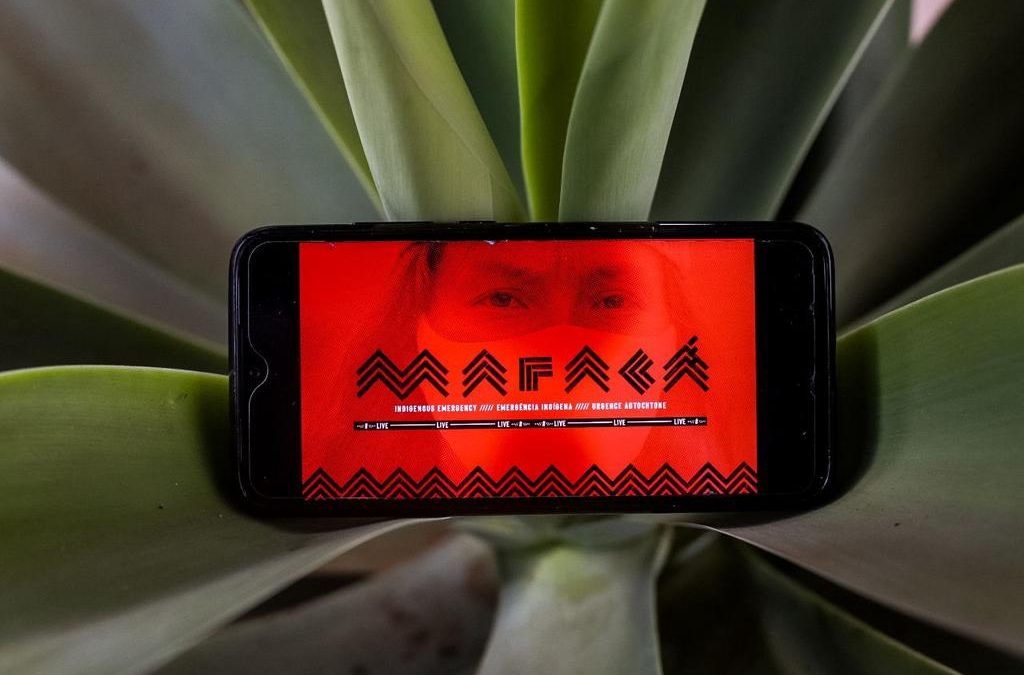
26/Aug/2020
Coordinated by APIB, ‘Maracá – Indigenous Emergency’ is a collective production directed by the following contibutors; Bia Lessa, APIB coordinator Sonia Guajajara, indigenous leader Célia Xakriabá, singer and composer Maria Gadú, Mídia Ninja coordinator Marielle Ramires, artist Laura Lima, designer Pedro Inoue and coordinator of 342 Amazônia Mari Stockler. The production was also made possible by Mídia NINJA who edited and co-produced the project and by Mídia India.
To save lives threatened by the Covid-19 pandemic, the Articulation of Indigenous Peoples of Brazil (APIB) is launching a web series this Weds 26th August at 19h. With more than 50% of people directly affected by Covid-19 and more than 27 thousand indigenous people infected by the virus, the series “Maracá – Indigenous Emergency” aims to mobilize international networks of support for the emergency plan drawn up by indigenous peoples to face this moment of crisis.
The eight-episode series will be available on APIB networks (@apiboficial) and will feature appearances from more than 200 personalities including artists, scientists, activists and indigenous and non-indigenous researchers from different countries. Episodes will be released twice-weekly on Wednesdays and Sundays, on the 26th and 30th of August and on the 2nd and 6th of September on APIB’s Youtube channel. Livestreams will also be held at 7 pm on the opening days of the episodes, with the participation of indigenous leaders and other supporters.
The webseries is a follow-up to the Maracá – Indigenous Emergency live event held on August 9 to draw attention to the seriousness of the Covid-19 crisis in Brazil and to increase collective efforts to face the pandemic. Among the primary objectives of the initiative is the collection of funds to finance relief actions in indigenous territories. This can be done virtually through a QR code and via the website (emergenciaindigena.apib.info).
Hundreds of notable artists and personalities from diverse bakgrounds came together to create Emergência Indígena, bringing together names including Maria Bethânia, Cacique Raoni, Ai WeiWei, Sonia Guajajara, Caetano Veloso, Joenia Wapichana, Dráuzio Varela, Tuyra Kayapó, Anitta, Kretã Kaingang, Criolo, Dinaman Tuxá, Jane Fonda, Nara Baré, Philip Glass, Cacique Babau, Wagner Moura, Kerexu Guarani, Camila Pitanga, Benki Ashaninka, Milton Nascimento, Djuena Tikuna, Thomas Lovejoy, Gean Pankararu, Margareth Menezes, Célia Xakriabá, Lenine, Shirley Krenak, Eliane Brum, Joziléia Kaingang, Chico Buarque, Eloy Terena, Alec Baldwin, Puyr Tembé, Mother Nivia, Paulo Tupiniquim, Sebastião Salgado, Fidelis Baniwa, Zé Celso, Marivelton Baré, Nando Reis, Marcos Xucuru, Emicida, Elizeu Guarani, Djamila Ribeiro, Lindomar Terena, Teresa Cristina, Giovani Krenak, Gaby Amarantos and many others.
‘We make our maracas resound so that indigenous lives impacted by the pandemic are remembered and to draw society’s attention to what is happening to us’, warns Sônia Guajajara, APIB coordinator. The maraca is a striking symbol of indigenous peoples and is present in rituals of both struggle and celebration.
The series format features eight episodes divided by theme and woven together with texts drawn from the speeches of Brazilian indigenous leaders (Chief Raoni, Sonia Guajajara, Kretã Kaingang, Marcos Xukuru, Shirley Krenak, among others). Speeches were read and interpreted by the invited personalities, and are accompanied by a montage of documentary footage and illustrations of indigenous peoples.
INDIGENOUS EMERGENCY
To date, 27,034 indigenous people have been infected by Covid-19 in Brazil and 717 have lost their lives to the disease, according to data from APIB’s National Committee for Indigenous Life and Memory. One hundred and fify-five indigenous ethnicities have been directly affected, an alarming situation that gets worse every day, because in addition to the threat of the virus, racism, illegal deforestation, agribusiness and the criminal action of loggers continues to advance into indigenous territories.
‘We are politically and spiritually prepared to continue to advance in the fight, seeking organs of control to guarantee the physical, cultural and territorial integrity of the indigenous peoples’, says Dinamam Tuxá, APIB coordinator.
Faced with the negligence of the Brazilian government in guaranteeing the protection of indigenous peoples during the pandemic, the emergency response plan, entitled Indigenous Emergency, was drawn up by APIB together with its grassroots organizations, doctors and researchers.
The coordinated campaign was launched at the end of June, informed by expert guidance on comprehensive and differentiated medical care, legal actions with a political impact and communication and information strategies on preventive measures.










